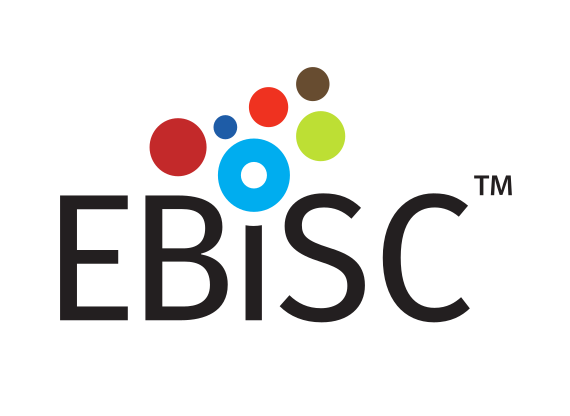If the cells you would like to access are currently listed as unavailable or
you would like information on local partners in USA, Australia, New Zealand or Japan who can support order and delivery,
please get in touch via
Contact@EBiSC.org.
EDi001-A-3
AST23_SNCAKO Clone 1, AST22-1KO-1, AST23-1KO-1, AST22_SNCAKO Clone 1
Gene-edited iPSC line
A CLIP contains information about a cell line including any
specific third party obligations relating to, for example,
licensing obligations or the donor consent which affect the
use of the cell line.
The EBiSC Access and Use Agreement must be completed along with an individual
Cell Line Information Pack for each line. Complete the EAUA and send to Contact@EBiSC.org
for countersignature. The EAUA must be fully signed before proceeding with your order.
A batch specific Certificate of Analysis will be available to
download once you receive your EBiSC iPSC line.
General#
Cell Line |
|
| hPSCreg name | EDi001-A-3 |
| Alternative name(s) |
AST23_SNCAKO Clone 1, AST22-1KO-1, AST23-1KO-1, AST22_SNCAKO Clone 1
|
| Cell line type | Human induced pluripotent stem cell (hiPSC) |
| Similar lines |
EDi001-A-2 (AST23-1KO-3, AST22-1KO-3, AST-23_SCAKO Clone 3, AST-22_SNCAKO Clone 3) Donor's gene variants: SNCA, SNCA, SNCA, SNCA Donor diseases: Parkinson disease EDi001-A (AST22, AST23, SAMEA3319992) Donor's gene variants: SNCA, SNCA, SNCA Donor diseases: Parkinson disease EDi008-B (G51D-4, EDINi008-B, EDIi008-B, SAMEA3174606) Donor's gene variants: SNCA, SNCA, SNCA, SNCA Donor diseases: Parkinson disease STBCi004-B-1 (SFC832-03-06 LRRK2WT/WT C47) Donor's gene variants: LRRK2 Donor diseases: Parkinson disease |
Provider |
|
| Depositor | University of Edinburgh (ED) |
| Owner | College of Medicine and Veterinary Medicine |
| Distributors |
EBiSC
Roslin Cells (RC)
|
| Derivation country | United States |
External Databases |
|
| hPSCreg | EDi001-A-3 |
| BioSamples | SAMEA3323899 |
| Cellosaurus | CVCL_LE53 |
| Wikidata | Q54831974 |
General Information |
|
| This EBiSC line can be used for: |
Yes
Research use: allowed
Clinical use: no
Commercial use: no
|
| Subclone of | |
Donor Information#
General Donor Information |
|
| Sex | female |
Phenotype and Disease related information (Donor) |
|
| Diseases | A disease was diagnosed.
|
| Family history | Strong family history of Parkinson’s disease due to autosomal dominant inheritance of SNCA triplication |
| Is the medical history available upon request? | Y Mov Disord. 2011 Sep;26(11):2134-6. doi: 10.1002/mds.23776 |
Donor Relations |
|
| Other cell lines of this donor | |
| All cell lines of this donor's relatives |
Has daughter:
|
External Databases (Donor) |
|
| BioSamples | SAMEA3319991 |
hIPSC Derivation#
General |
|
|
The source cell information can be found in the parental cell line
EDi001-A.
|
|
Reprogramming method |
|
| Vector type | Integrating |
| Vector | Virus (Retrovirus) |
| Genes | |
| Is the used vector excisable? |
No |
| Absence of reprogramming vector(s)? |
Unknown |
| Reprogramming vectors silenced? |
Yes |
| Methods used |
RT-PCR
|
Vector free reprogramming |
|
| Type of used vector free reprogramming factor(s) |
None
|
Other |
|
| Selection criteria for clones | Nickase pair mediated SNCA Knock-out of 1 SNCA alleles. Therefore 3 alleles remain. |
| Derived under xeno-free conditions |
No |
| Derived under GMP? |
No |
| Available as clinical grade? |
No |
Culture Conditions#
Latest released batch |
|
| Culture medium | mTeSR |
| Passage method | EDTA |
| Surface coating | Matrigel / Geltrex |
| O2 concentration | 20 |
| CO2 concentration | 5 |
| Temperature | 37 |
The following are the depositor culture conditions, they do not refer to any specific batch.
| Surface coating | Laminin | ||||||
| Feeder cells |
No |
||||||
| Passage method |
Enzymatically
Accutase
|
||||||
| O2 Concentration | 95 % | ||||||
| CO2 Concentration | 5 % | ||||||
| Medium |
Essential 8™
Supplements
|
Characterisation#
Analysis of Undifferentiated Cells
| Marker | Expressed | Immunostaining | RT-PCR | Flow Cytometry | Enzymatic Assay | Expression Profiles |
| SSEA-4 |
Yes |
|||||
| TRA 1-60 |
Yes |
|||||
| SSEA-1 |
No |
Differentiation Potency
Microbiology / Virus Screening |
|
| HIV 1 | Negative |
| HIV 2 | Negative |
| Hepatitis B | Negative |
| Hepatitis C | Negative |
| Mycoplasma | Negative |
Genotyping#
Karyotyping (Cell Line) |
|
| Has the cell line karyotype been analysed? |
No
|
Other Genotyping (Cell Line) |
|
Genetic Modification#
| Disease/phenotype related modifications |
|
